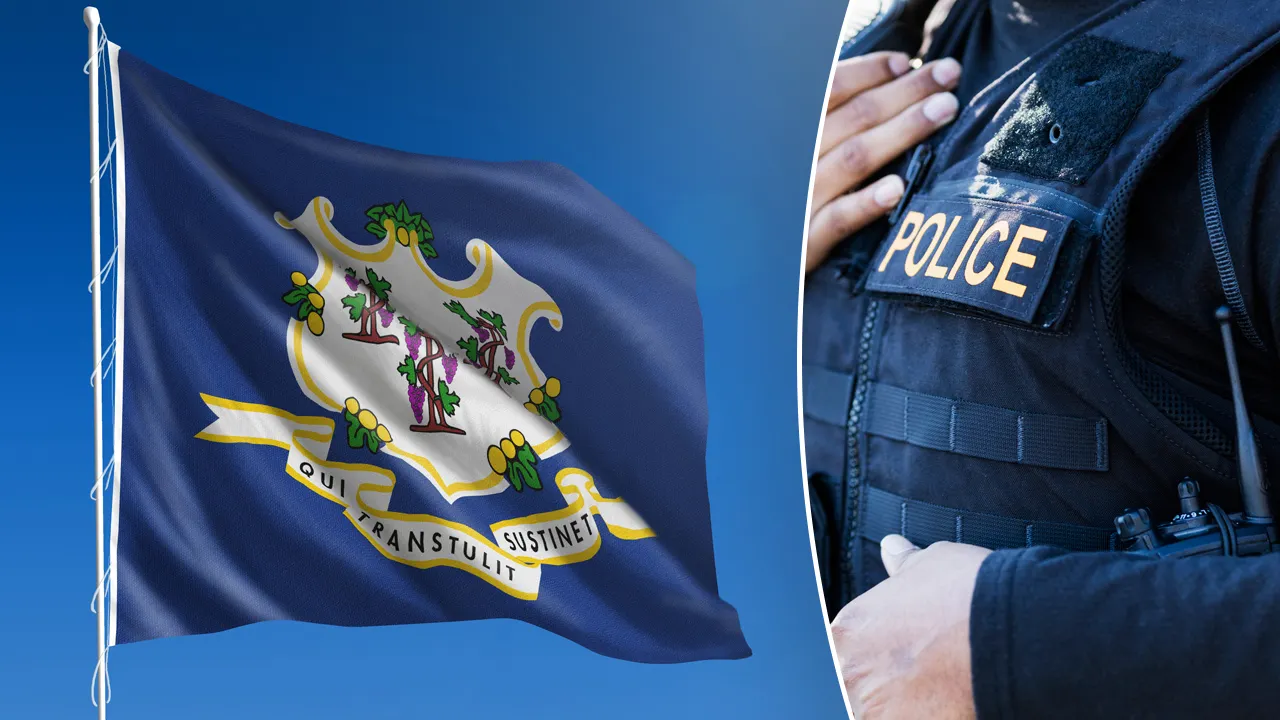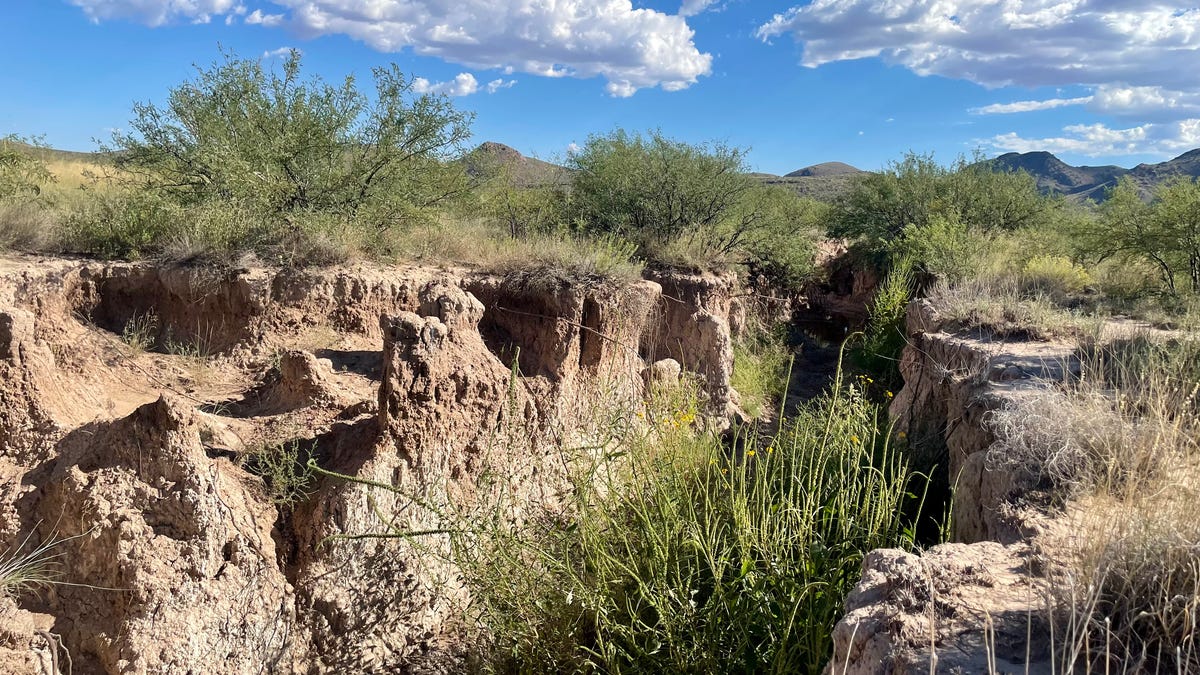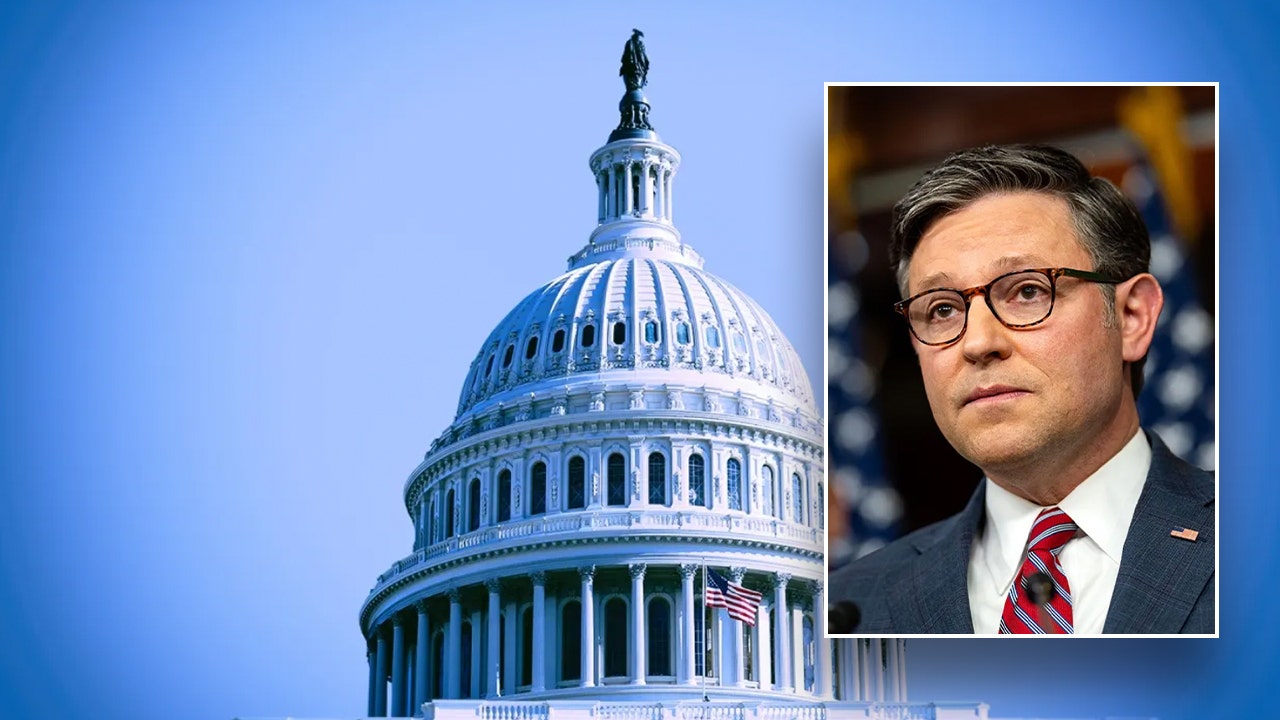Connecticut
CT Health Department issues consumption advisories for some fish species caught in state waters

The Connecticut Department of Public Health Thursday issued new or modified consumption advisories for some fish species caught in several water bodies in Connecticut, according to the agency.
The health agency said it took this action “in close coordination” with the Department of Energy and Environmental Protection.
CT.gov
Consumption Advisory History for Fish Caught in 14 Waterbodies in Connecticut, per the Connecticut Department of Public Health
“Upon evaluating perfluorooctane sulfonic acid (PFOS) concentrations in fish tissue sampled in 2017-2022 from 14 waterbodies using DPH’s recently derived PFOS health risk values, DPH has updated or issued new consumption advisories in 11 waterbodies as shown in the table (it issued),” the agency said in a statement. “These updated consumption advisories are for the general population and are also protective of sensitive populations.”
New or modified consumption advisories are issued for: Connecticut, Lower Farmington, Housatonic (near O’Sullivan’s Island in Derby), Natchaug, Willimantic, Shetucket, Naugatuck, Pequabuck, Still (Winchester), Scantic, and Quinnipiac rivers.
“These consumption advisories are necessary to protect public health while allowing for community members to benefit from the nutritional benefits of eating fish,” DPH Commissioner Manisha Juthani, said in the statement. “PFOS is one of a group of related chemicals known as per- and polyfluoroalkyl substances (PFAS). This group of chemicals is commonly used in a wide range of industrial processes and is found in many consumer products. Long-term exposure to PFAS may be associated with increased levels of cholesterol and liver enzymes, a change in immune response, developmental effects, increased chance of high blood pressure and/or increased chance of pre-eclampsia during pregnancy, and an increased chance of thyroid disease.”
According to Juthani it was “not necessary to modify the current advisories for the Hockanum, Tankerhoosen, and the Upper Housatonic Rivers. Additionally, there are no new or existing advisories in place for the Quinebaug River other than the statewide freshwater advisory.”
Further information from the agencies included a warning about freshwater fish: “The advice for freshwater fish caught in Connecticut for pregnant women, women who could become pregnant, and children under 6 years old (high risk groups) is to eat no more than one meal per month. For all other groups, the advice is to eat no more than one meal per week of freshwater fish. This statewide advice is due to mercury contamination found in Connecticut freshwater fish. This statewide advisory does not apply to sunfish or trout as there are no consumption limits for these fish species, except otherwise noted.”
More information on DPH fish consumption advisories is at: https://portal.ct.gov/fish or by calling a DPH staff person at 1-877-458-FISH (3474). More information on PFAS can be found at https://portal.ct.gov/DPH/Environmental-Health/PFAS/PFAS.

Connecticut
Warming centers to open across the state amid cold temperatures

Warming centers will open their doors across the state amid cold temperatures this weekend and into next week.
Saturday marks the first day of winter, and it will feel like the new season with highs in the 20s and low 30s.
By Sunday morning, the wind chill will fall below 0.
Winds will be gusting up to 25 miles per hour early on Sunday, so conditions will feel a bit bitter. The northwest hill towns will feel the worst of it.
Temperatures will remain low through Christmas Eve on Tuesday.
There is a possibility for some snow and rain showers on Christmas Eve and into early Christmas Day.
Our StormTracker meteorologists are monitoring the timing and temperatures associated with this system.
To see local warming centers near you, click here.
Connecticut
Strange Connecticut laws, such as receiving a $99 fine for selling silly string to a minor

Sometimes, certain laws in a state can make you wonder whether they are fact or fiction.
Some rather bizarre “laws” are nothing more than a myth, where others are clearly defined.
Like every other state, Connecticut has some strange laws.
If you look through any state’s laws, including Connecticut’s, you’re sure to find some confusing ones. (iStock)
BIZARRE LAWS IN WASHINGTON, SUCH AS BEING CHARGED WITH RECKLESS DRIVING IF HUGGING WHILE BEHIND THE WHEEL
One quite famous strange “law” of Connecticut regards pickles.
Many online articles discuss a law in Connecticut stating that in order for a pickle to be considered a pickle, it must bounce.
The subject was investigated by many sources, including The Connecticut State Library and NBC CT.
Both point to the same article written in the Hartford Courant in 1948 as the source of the myth, where two pickle packers found themselves in legal trouble for selling pickles “unfit for human consumption.”

One strange Connecticut “law,” which is actually a myth, provides that pickles must bounce. (iStock)
When the “putrid” pickles were being tested, the Food and Drug Commissioner of the time, Frederick Holbrook, stated that a good test to tell whether a pickle was good or not was to “drop it one foot” and see if it bounced.
A bouncy pickle makes a good pickle.
When these particular pickles were dropped, they did not bounce and instead splattered, though the test was not the reason for the legal trouble. There were many laboratory tests also conducted.
Even though the pickle law is fictional, there are other strange laws in the state that are real.
Read about a few below.
STRANGE LAWS IN NEW MEXICO, INCLUDING TROUBLE FOR TRIPPING A HORSE
- Restrictions on silly string
- Don’t release balloons
- Limitations on arcade games
1. Restrictions on silly string
Minors aren’t trusted with silly string in Meriden, Connecticut.
Silly string is often used in a celebratory fashion, but it can quickly cause a big mess.
In the city of Meriden, silly string cannot be sold to minors unless they are with a parent or legal guardian.
The specifics are laid out in Chapter 175 of Meriden law.

Children of Meriden, Connecticut are not allowed to be sold silly string without a parent. (iStock)
If a store is selling silly string or products similar to it, it must be locked up, held behind the sales counter or “in some other manner which restricts public access to such products.”
The fine for breaking this law is $99.
2. Don’t release balloons
There are many occasions where balloons are purposefully released into the air. Many states have cracked down on this practice and have created laws limiting the release of balloons, or banning the act completely.
To date, there are ten states, including Connecticut, that have some sort of law regarding the release of balloons into the air, according to CBS News. Rhode Island, Virginia, Maryland and Delaware are others.
Connecticut General Statute Section 26-25C details this law.
WEIRD LAWS IN MASSACHUSETTS INCLUDING A $20 FINE, POSSIBLE JAIL TIME FOR FRIGHTENING A PIGEON
The law prevents the release of ten or more “helium or lighter-than-air gas balloons” into the atmosphere during a 24-hour period.
Though the release of balloons may seem harmless, and a law against it could seem rather strange, celebratory balloons could pose a danger to wildlife.
Animals could mistake balloons for food, causing harm or, in certain cases, death, the U.S. Fish and Wildlife Service notes on its website.
The strings of balloons can also be dangerous for animals, as they could get tangled up in them, the federal agency additionally notes.

Ten or more balloons may not be released into the air in Connecticut. (iStock)
3. Limitations on arcade games
Did you know that Rocky Hill, Connecticut, has a law involving arcade games?
The details are laid out in Chapter 81 of the town’s legislation.
Described in the law is the regulation that no “more than four mechanical amusement devices” are allowed.
As part of the law, individuals, partnerships, corporations, clubs or associations can not “have in any place within a permanent structure open to the general public or occupied by any club or association any mechanical amusement device without first having obtained a license therefor.”
CLICK HERE TO GET THE FOX NEWS APP
“Notwithstanding the provisions of Subsection A, no person shall have in any place within a permanent structure open to the general public more than four mechanical amusement devices,” the law also states.
Those who break this law face a fine of $25 for each day of violation.
South Carolina is another state that has a strange arcade law. Its law is specific to pinball. Those under the age of 18 are not allowed to play the popular game.
Connecticut
Drone Flight Ban: New York bans drone flight in New Jersey, Connecticut amid security concerns: What you need to know | World News – Times of India

The Federal Aviation Administration (FAA) on Thursday imposed a temporary drone flight ban across parts of New York state, including Brooklyn, Queens, and two communities on Long Island. The restriction, which is set to last until January 18, is part of a broader effort to secure critical infrastructure sites, including energy facilities and government buildings, as drone sightings continue to spark fears and uncertainty in the region.
“Precautionary action” or real threat?
Gov. Kathy Hochul of New York reassured the public that the ban was precautionary in nature, emphasizing that “there are no threats to these sites.” However, with the restriction affecting critical areas like Far Rockaway in Queens, Ridge, and Garden City on Long Island, many are left wondering if authorities know more than they are letting on.
Meanwhile, the FAA’s move comes after a similar ban was imposed in New Jersey earlier this week, covering a significant portion of the state, including Camden, Elizabeth, and Jersey City. The restrictions, which will last through January 17, are part of a response to rising concerns over drone activity near sensitive infrastructure, such as the Salem Nuclear Generating Station in Lower Alloways Creek.
“This is an extremely important site,” Rep. Jeff Van Drew Says of Nuclear Plant
Rep. Jeff Van Drew, whose district includes Salem County, voiced his concerns over recent reports of drones near the nuclear facility. “This is tactically an extremely important site,” Van Drew explained, highlighting the importance of the facility, which generates nearly half of New Jersey’s power. PSE&G, the operator of Salem Nuclear, confirmed that the company had requested the FAA impose flight restrictions near the facility for safety reasons.
While there has been no direct evidence of a threat, the urgency surrounding the drone sightings has escalated. Van Drew criticized the federal government for not providing more concrete details on the incidents, noting that “what scares people is uncertainty.”
A broader concern spreads across the region
As drone sightings have become more frequent, public concern has intensified. In Connecticut, Republican lawmakers are now calling for similar drone restrictions to protect the state’s critical infrastructure, with a collective question hanging in the air: “What about Connecticut?”
In New Jersey, Rep. Josh Gottheimer expressed frustration over the lack of transparency. “They must brief the public on the reasons for their action,” he stated. He worried that without a clear explanation, the FAA’s broad ban could create even more confusion and panic among residents and businesses in the affected areas.
Confusion and difficulties for pilots
Patrick E. Bradley, an aviation lawyer and pilot based in Princeton, New Jersey, remarked on the unusual nature of the FAA’s decision, pointing out that he has never seen such an extensive set of restrictions in over 40 years of flying. “All of these minuscule, tiny, temporary flight restrictions – I’ve never seen that done before,” Bradley said, adding that the complexity of the bans could lead to confusion for both drone operators and airplane pilots trying to navigate the airspace.
The FAA’s restrictions apply only to drone operators, but consequences for violators are severe. Pilots found flying drones in restricted areas could face federal detention or questioning. Many commercial drones are registered with the FAA, making it easier for authorities to track down violators. However, there is still concern over how hobbyists or recreational drone users may be discovered.
Security concerns or overreaction?
Despite repeated assurances from federal officials that there is no immediate security threat, the uncertainty surrounding the drone sightings continues to fuel speculation. Dana Gallagher, a spokesperson for the U.S. Department of Homeland Security, stated, “We continue to assess there is no public safety threat relating to the reported drone sightings,” while maintaining that the FAA acted out of an abundance of caution.
As drone sightings continue to proliferate, with numerous reports across New Jersey, New York, and other northeastern states, the question remains: Are these drones merely harmless misidentifications of helicopters or planes, or is there something more sinister at play? Only time will tell whether the FAA’s swift actions are a prudent response to potential threats or an overreaction to a growing sense of anxiety.
For now, New Yorkers and New Jerseyans, along with drone operators across the region, will have to adjust to the new temporary restrictions—waiting to see if this is a momentary precaution or the beginning of a broader regulatory crackdown.
-

 Politics1 week ago
Politics1 week agoCanadian premier threatens to cut off energy imports to US if Trump imposes tariff on country
-
/cdn.vox-cdn.com/uploads/chorus_asset/file/25782636/247422_ChatGPT_anniversary_CVirginia.jpg)
/cdn.vox-cdn.com/uploads/chorus_asset/file/25782636/247422_ChatGPT_anniversary_CVirginia.jpg) Technology1 week ago
Technology1 week agoInside the launch — and future — of ChatGPT
-
/cdn.vox-cdn.com/uploads/chorus_asset/file/25789444/1258459915.jpg)
/cdn.vox-cdn.com/uploads/chorus_asset/file/25789444/1258459915.jpg) Technology7 days ago
Technology7 days agoOpenAI cofounder Ilya Sutskever says the way AI is built is about to change
-

 Politics7 days ago
Politics7 days agoU.S. Supreme Court will decide if oil industry may sue to block California's zero-emissions goal
-
/cdn.vox-cdn.com/uploads/chorus_asset/file/25546252/STK169_Mark_Zuckerburg_CVIRGINIA_D.jpg)
/cdn.vox-cdn.com/uploads/chorus_asset/file/25546252/STK169_Mark_Zuckerburg_CVIRGINIA_D.jpg) Technology1 week ago
Technology1 week agoMeta asks the US government to block OpenAI’s switch to a for-profit
-

 Politics1 week ago
Politics1 week agoConservative group debuts major ad buy in key senators' states as 'soft appeal' for Hegseth, Gabbard, Patel
-

 Business5 days ago
Business5 days agoFreddie Freeman's World Series walk-off grand slam baseball sells at auction for $1.56 million
-
/cdn.vox-cdn.com/uploads/chorus_asset/file/23951353/STK043_VRG_Illo_N_Barclay_3_Meta.jpg)
/cdn.vox-cdn.com/uploads/chorus_asset/file/23951353/STK043_VRG_Illo_N_Barclay_3_Meta.jpg) Technology5 days ago
Technology5 days agoMeta’s Instagram boss: who posted something matters more in the AI age
























